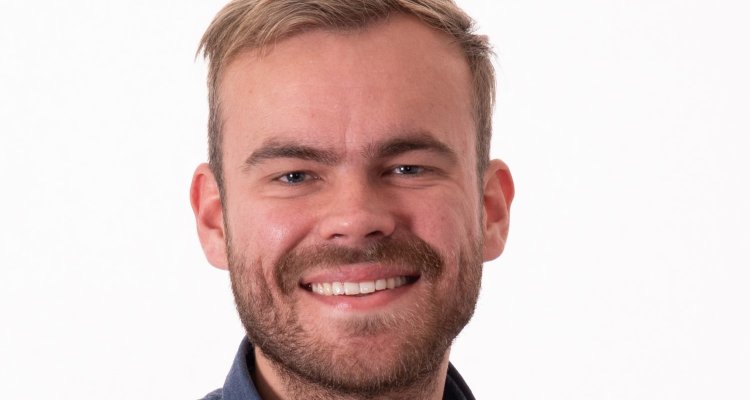
Alumnus testimonial
A PhD project at ABG: "This project is really close to my heart"
Jeroen Kappelhof initiated his PhD project at Animal Breeding and Genomics Group (ABG) by suggesting to work with Wageningen University & Research (WUR).
During my studies I didn't want to do a PhD at all.
"I did my bachelor and master Animal Sciences at WUR, and afterwards I started working at Rotterdam Zoo for the Asian Elephant EAZA Ex situ Programme (EEP)", says Jeroen. "I still work at Rotterdam Zoo as a research coordinator. That's really how the PhD project started. My supervisor, dr Mirte Bosse (expert in the field of Conservation Genomics) wrote the research proposal and submitted it to the NWO (Dutch Research Council)."
A scientific approach with the breeding programme
"During my studies I didn't want to do a PhD at all. I thought: 'No way, that's just not for me.' But this project has become something that's really close to my heart, especially because I sort of initiated the project by suggesting to work with WUR. When I started working at Rotterdam Zoo, I thought: 'we should take a more scientific approach with the breeding programme.' The zoo agreed, and they agreed to partner up with WUR to make it all happen. That's really when I became more and more enthusiastic about the project and I realised that I wanted to be the one to perform the research," Jeroen says.
He continues: "While we were writing the research proposal, it wasn't apparent yet that I would actually be the one to get the PhD position, which was a bit weird in a way. In the back of my mind I sort of knew, but a part of me didn't feel like I could rely on it actually becoming a reality. I thought: 'What if they prefer a different candidate for the position?' That would have been a huge letdown."
Conservation genomics
"My current focus is on conservation genomics, which is a bit new for me because I previously focused on population genetics, which is quite different. But I think it's important for me and for my position at Rotterdam Zoo that I actively work on developing my skills in this area; population management of endangered species based solely on their pedigree probably won't be sufficient in the future, so it's important that I learn more about the genomics-side. And I really like that I'm still learning new skills while working on my PhD."
The PhD track adds a valuable extra dimension to my work at Rotterdam Zoo.
"When I started my PhD I was quite insecure," says Jeroen. "I thought: 'Where do I start? How am I going to structure this project?' A PhD is a long track, which can feel quite overwhelming at times. It's helpful to have a clear view of all the steps you have to take to make the process run smoothly. Thankfully, there was a lot of information available from the university and the chair group. Also, since I'd done all my theses and internships at ABG, I had a very 'soft landing'; I knew most of the people who worked there. And I had also worked with dr Mirte Bosse before we took on the PhD project, so that collaboration felt really familiar as well. I can imagine it might be different if you haven't studied at WUR, but I know from experience that everyone at ABG is really helpful. So even if you want to apply for a PhD position and you come from a different university, you will undoubtedly receive a very warm welcome."
I think the most important thing is that you're curious and that you're enthusiastic about your research topic.
"There are many people who want to do a PhD mainly because of the academic title that comes with it, but I think that's never the right motivation to do a PhD. A PhD takes a lot of time and discipline, so it's important to stay motivated and to feel passionate about your research," Jeroen advises. "I really like my work, and the idea that I, via this project, can contribute to the conservation of biodiversity and apply my knowledge to keep the elephant population healthy is really amazing."